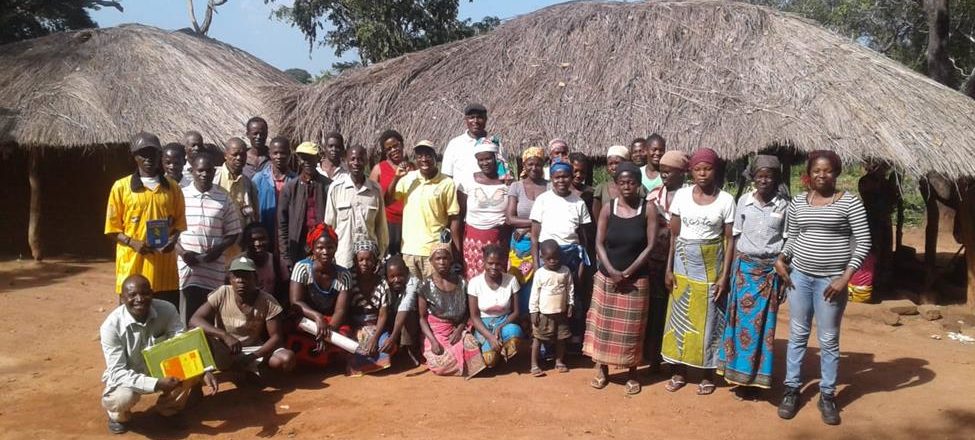Introduction and Background
The Integrated Land and Resource Governance (ILRG) task order (TO) under the Strengthening Tenure and Resource Rights II (STARR II) Indefinite Delivery/Indefinite Quantity (IDIQ) contract provides support to the United States Agency for International Development’s (USAID) Land and Urban Office in the Bureau for Economic Growth, Education, and Environment (E3/LU). ILRG develops and implements targeted interventions in select USAID presence and non-presence countries, providing technical assistance to improve land and resource governance, strengthen property rights, and build resilient livelihoods as the foundation for stability, resilience, and strong economic growth. The TO has four primary objectives that assist in ending extreme poverty:
- To increase inclusive economic growth, resilience, and food security;
- To provide a foundation for sustainable natural resource management and biodiversity conservation;
- To promote good governance, conflict mitigation, and disaster mitigation and relief; and,
- To empower women and other vulnerable populations.
To achieve these objectives, the TO works collaboratively with USAID, communities, civil society, host country governments, academia, and the private sector through four inter-related components:
- Component 1: Support the development of inclusive land and property rights laws and policies;
- Component 2: Assist law and policy implementation, including clarifying, documenting, registering, and administering rights to land and resources;
- Component 3: Support the capacity of local institutions to administer and secure equitable land and resource governance; and
- Component 4: Facilitate responsible land-based investment that creates optimized outcomes for communities, investors, and the public.
The ILRG contract has two mechanisms for providing support on land and natural resource governance: 1) term activities; and 2) completion activities. Under the term portion of the contract, the project implements technical assistance in Mozambique and Zambia, with the potential to also provide support in Mexico. Work in Mozambique initially focuses on clarifying, documenting, registering, and administering rights to land and resources – including through collaboration on responsible land-based investment, while work in Zambia includes support to land policy, customary land administration and service delivery, and natural resource governance and tenure around protected areas. Under the completion portion of the contract, USAID missions, bureaus, and offices can support additional field support scopes of work in locations to be determined. Initial activities identified under this portion of the contract include: 1) support around USAID’s draft Policy on Indigenous Peoples’ Issues; 2) support to deforestation-free cocoa in Ghana through the creation of a sustainably financed farm rehabilitation and land tenure strengthening model; and 3) collaboration with PepsiCo on gender and women’s economic empowerment within the potato value chain in West Bengal, India. Additional discussions are underway regarding potential completion activities in Liberia and Burma.
ILRG was awarded July 27, 2018. The TO has a three-year base period (through July 2021) and two one-year option periods.
Executive Summary
This report covers months six to nine of the ILRG program and reflects establishment of relationships with field grantees and development of relationships with government partners. In addition, new completion activities were advanced.
ILRG Zambia and Mozambique hosted visits by ILRG’s global Gender Advisor, as well as a consultancy looking at behavioral elements of customary/community land administration. Zambia and Mozambique teams launched the grant process with four partners related to land documentation, and Zambia began partnerships on wildlife and forest management. In Zambia, significant effort focused on government engagement across multiple ministries at national and district levels.
With respect to completion activities, ILRG began follow-up on USAID’s draft Policy on Indigenous Peoples’ Issues by developing a plan to complete four sector-specific guidance documents. ILRG also continued developing an implementation plan in Ghana to work with private sector partners the Hershey Company (hereafter Hershey) and Ecom Agroindustrial Corporation (ECOM) on cocoa farm rehabilitation, land tenure documentation, and land use planning with the goal of reducing emissions from deforestation, as well as achieving a private-sector-facilitated scaling of farm rehabilitation and land tenure documentation. The implementation plan was being finalized late in the quarter.
ILRG, including consortium partner Landesa, began to implement a USAID/PepsiCo partnership by carrying out an assessment related to land rights, gender, and agriculture in the potato value chain in West Bengal, India. Due to the United States Government shutdown in December/January, this activity was not financially supported by USAID but rather fully funded by PepsiCo. An implementation plan is expected to be completed in early May 2019, following a multi-stakeholder meeting in New Delhi the same month. The work will seek to build the business case for women’s economic empowerment in potato farming communities in West Bengal, India. Completion activities in Liberia and Burma await further guidance from USAID. Term activities in Mexico remain on hold, and in the coming year ILRG will work to determine with USAID whether these activities will move forward or be reprogrammed.


